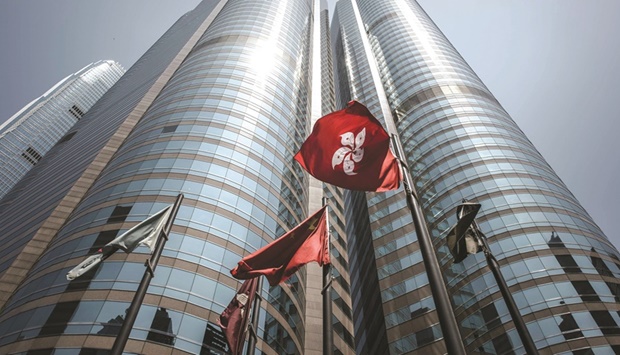Asian equities mostly sank on Tuesday and oil prices tumbled following a rout on Wall Street as anxieties were fanned over rising US interest rates, surging inflation and the impact of China’s prolonged Covid lockdowns.
Stock markets have been on a tempestuous ride this year, with Wall Street suffering another hit on Monday as the tech-rich Nasdaq slumped more than 4%, while the S&P 500 ended below 4,000 points for the first time since March 2021.
Steep declines in China’s April exports — due to Beijing’s staunch adherence to a zero-Covid policy that has placed millions under lockdown — and volatility in crude partly due to Russia’s war in Ukraine have also hastened selling.
“This rather precipitous drop in equity markets has been building for several months,” said Clifford Bennett, chief economist at ACY Securities.
“The fundamentals of war, inflation, rate hikes and supply-chain disruption are all individually significant headwinds.
When combined, equity markets have no way through.”
US stock markets took a dive late last week after the Federal Reserve raised interest rates by a half-percentage point and flagged more aggressive hikes ahead to tackle decades-high inflation.
Stoking global inflationary pressures are lockdowns in dozens of locations across China — from the manufacturing hubs of Shenzhen and Shanghai to the breadbasket province of Jilin — wreaking havoc on supply chains over recent months.
By Tuesday afternoon, the equities plunge in Asia had eased, and European stocks in Frankfurt, Paris and London rebounded as dip buyers sent markets rallying after the wreckage from Monday’s rout.
“For now, investors need to be prepared for continued volatility,” Solita Marcelli, Americas chief investment officer at UBS Global Wealth Management, wrote in a note, according to Bloomberg.
Tokyo on Tuesday closed down 0.6%, as Japanese traders fretted over US monetary tightening.
Slumps seen in Seoul, Wellington, Singapore and Jakarta eased.
“Risk markets remain on shaky ground,” said Stephen Innes of SPI Asset Management. Bitcoin also slumped to as low as $29,764.
The digital currency has lost more than half its value since a November surge saw it hit a record of nearly $69,000.
Such a drastic drop in its value has not been seen since July 2021. Analysts say traditional investors tend to view bitcoin as a riskier asset and have been offloading it along with other digital tokens in response to growing fears of market volatility.
Crude — once considered a relative safe haven — also took a beating Monday when it plunged more than 5%, with the European benchmark Brent North Sea crude dropping to $106.77 per barrel, while the main US contract WTI was at $103.87.
By Tuesday, the drop-off had eased — though crude was still lower, with Brent trading at around $105.72 and WTI at $102.97.
Hong Kong Hang Seng Index closed down 1.5% to 19,705.51 points; Shanghai Composite ended up 1.1% to 3,035.84 points and Tokyo Nikkei 225 closed down 0.6% to 26,167.10 points yesterday.

An external view of the Hong Kong Stock Exchange building. The Hang Seng Index closed down 1.5% to 19,705.51 points yesterday.
